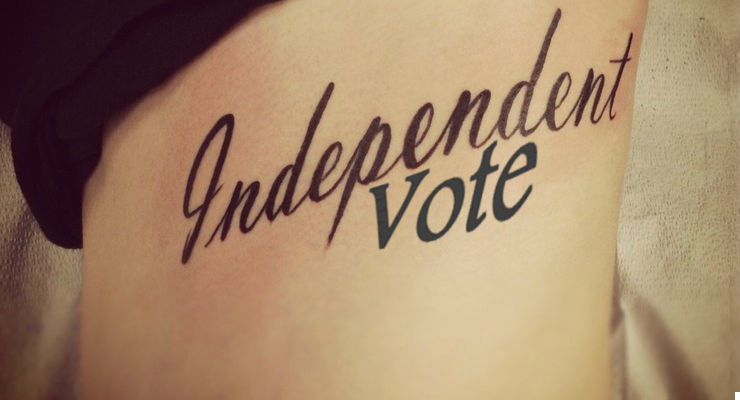
Democracy, elections and voting at Democracy Chronicles
News that fourteen independents win state legislature representation is a blow to universal two-party duopoly. Ballot Access News, written by election expert Richard Winger, has come up with the latest tally. See the original post at Ballot Access News too.:
On November 4, fourteen independent candidates were elected to state legislatures. Two were elected to State Senates: Harri Anne Smith in Alabama, and Edward O’Neill in Rhode Island. Both were incumbents running for re-election.
- Twelve were elected to lower houses:
- Alaska: Dan Ortiz of Ketchikan
- Georgia: incumbent Rusty Kidd
- Maine: incumbents Joseph Brooks, James Campbell, Ben Chipman, and Jeffrey Evangelos
- Rhode Island: Blake Filippi
- Vermont: Alyson Eastman, Barbara S. Murphy, Paul Poirier, Adam Greshin, and Laura Sibilia.
As already posted, eight Progressives were elected in Vermont, so that makes a total of 22 minor party and independent candidates elected to state legislatures this year. Only 218 independent candidates ran for state legislative seats in November 2014, so 6.4% of them were elected.
Here is a good short description of the history and importance of American third party participation from the Politics and Governance Portal at Politiks:
Independent and third-party candidates have always held a larger than life image, chiefly due to the larger than life personalities of the three most successful presidential candidates outside of the big two – Teddy Roosevelt, Ross Perot and Ralph Nader. The hegemony of the big two was only ever really threatened once, in 1912, when Teddy Roosevelt finished a distance second behind eventual winner, former President Woodrow Wilson.
Independents and third parties candidates are consistently at a disadvantage compared to their Republican and Democratic peers – from a financial, organizational and captive voter base perspective. However, it bears reminding that the country’s first president, George Washington, ran as an independent!
Leave a Reply